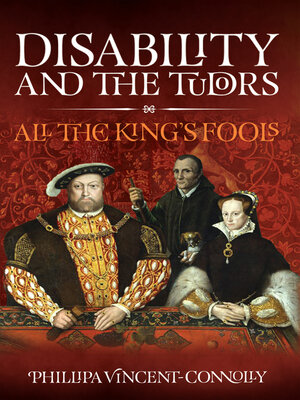
Sign up to save your library
With an OverDrive account, you can save your favorite libraries for at-a-glance information about availability. Find out more about OverDrive accounts.
Find this title in Libby, the library reading app by OverDrive.



Search for a digital library with this title
Title found at these libraries:
| Library Name | Distance |
|---|---|
| Loading... |
Throughout history, how society treated its disabled and infirm can tell us a great deal about the period. Challenged with any impairment, disease or frailty was often a matter of life and death before the advent of modern medicine, so how did a society support the disabled amongst them? For centuries, disabled people and their history have been overlooked - hidden in plain sight. Very little on the infirm and mentally ill was written down during the renaissance period. The Tudor period is no exception and presents a complex, unparalleled story. The sixteenth century was far from exemplary in the treatment of its infirm, but a multifaceted and ambiguous story emerges, where society's 'natural fools' were elevated as much as they were belittled. Meet characters like William Somer, Henry VIII's fool at court, whom the king depended upon, and learn of how the dissolution of the monasteries contributed to forming an army of 'sturdy beggars' who roamed Tudor England without charitable support. From the nobility to the lowest of society, Phillipa Vincent-Connolly casts a light on the lives of disabled people in Tudor England and guides us through the social, religious, cultural, and ruling classes' response to disability as it was then perceived.







